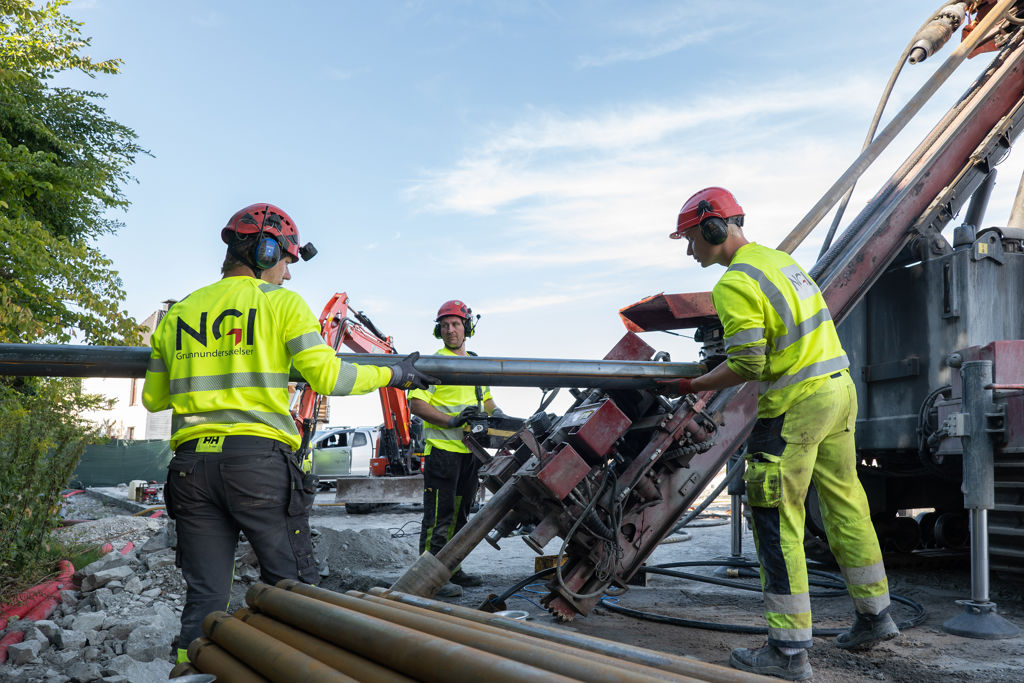What is geotechnical engineering?
Geotechnics is the engineering subject that deals with the properties of soil (sand, silt and clay) in terms of construction technology, and assessment of slope stability and the risk of landslides. See also links to films about geotechnics on the International Society for Soil Mechanics and Geotechnical Engineering (ISSMGE) website, with a description of the subject of geotechnics.

The field of geotechnics
From a scientific point of view, geotechnics is very much about defining strength and deformation properties for soil, such as clay, silt and sand. Geotechnics includes disciplines such as soil mechanics, hydrogeology and geology and adjacent disciplines such as geophysics. Geotechnics and engineering geology are a specialization in the field of civil engineering. Engineering geology, on the other hand, deals with the strength and deformation properties of rock materials. In international terminology, the term "geotechnical engineering" often includes both soil and rock mechanics.
Geotechnics as a scientific subject was primarily developed by the Austrian Karl Terzaghi in the first half of the last century. He was a professor at the University of Vienna and then at Harvard University in the United States. Before his death in 1963, he bequeathed all his academic and scientific material to NGI. This is collected in the Terzaghi Library at NGI, which opened in 1967.
Geotechnical consulting
Geotechnics is used for planning and design in connection with, for example, road construction and foundations of buildings and other structures on land and at sea. The field also involves competence in analysis of slope stability, load-bearing capacity and deformation of ground works and structures.
Research and development
Research and development in the field of geotechnics includes improvement and development of equipment and methods for ground investigations, material understanding, numerical analysis and design:
- equipment and methods for ground investigations in the field and testing of sediment samples in the laboratory
- methods for numerical analysis of how the ground behaves and withstands loads, in connection with the construction of structures (buildings, bridges, dams, etc.), roads, railways and installations at sea (platforms, wind turbines, pipelines), etc.
- methods for measuring and instrumenting and monitoring how both the ground itself and structures behave during the construction phase and over the life time, and thus verify whether this is in accordance with the design
NGI conducts research and development in all its market and subject areas. Annually, NGI receives funding for such research from the Research Council of Norway. In addition, NGI is an active contributor to EU research programs, working closely with industry and business in research and development.
Education in geotechnics
Education in geotechnics is a specialization at master's level in civil engineering. Structural engineering is a closely related and complementary field to geotechnics in the field of civil engineering. In Norway, it is primarily NTNU, at the Department of Civil and Environmental Engineering, that educates geotechnicial engineers. Courses in geotechnics and geotechnical subjects are also offered at several universities and colleges.